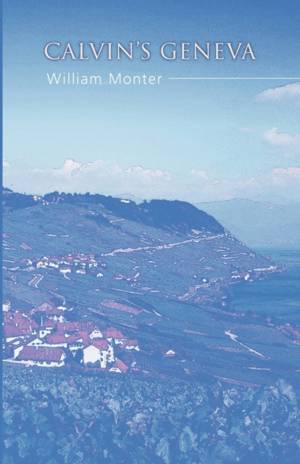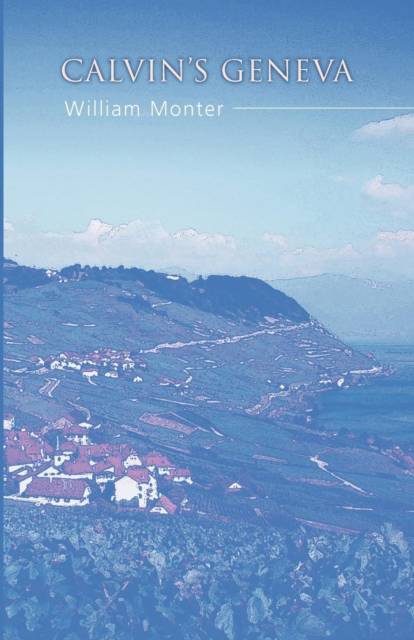
- Afhalen na 1 uur in een winkel met voorraad
- Gratis thuislevering in België vanaf € 30
- Ruim aanbod met 7 miljoen producten
- Afhalen na 1 uur in een winkel met voorraad
- Gratis thuislevering in België vanaf € 30
- Ruim aanbod met 7 miljoen producten
Zoeken
Omschrijving
Synopsis: For over four hundred years, the city of Geneva has been important in Western history. The character of this city--steady, serious, erudite, clannish, and proud--has remained virtually unchanged since Calvin's time, the heroic age when she first became famous. Professor Monter relates the "success story" of this fascinating city through a fresh synthesis of printed and archival sources. In the sixteenth century, Geneva succeeded in winning and maintaining her independence, a feat unique in Reformation Europe. Into this special environment came Calvin--and his triumph was the result of a brilliant mind and an undeviating will being placed in the midst of the crude and confused surroundings of a revolutionary commune. Professor Monter explores the components of Geneva's and Calvin's fame in a number of ways. First, he outlines the history of the city from the early sixteenth century to Calvin's death in 1564, showing the tumultuous environment of the city where Calvin worked and the means by which local opposition to Calvin dissolved. He next describes the principal institutions and social groups of Calvin's Geneva: the established church, the civil government, and the foreign refugee communities. Finally, he assesses Calvin's legacy to Geneva and discusses the workings of Calvinism after its founder's death. As a whole, Calvin's Geneva is a revealing portrait of a major city and an acute analysis of its effect on one of the most important men in the sixteenth century. Author Biography: E. William Monter (PhD Princeton, 1963) is Professor of Early-Modern Europe at Northwestern University. He is an internationally renowned early-modern social historian who has worked on a wide variety of subjects, including witchcraft, the Inquisition, women's history, and perceived deviance, with special reference to France, Switzerland, and Spain. He is the recipient of numerous awards, including Guggenheim and NEH fellowships, and membership in the Institute for Advanced Study.
Specificaties
Betrokkenen
- Auteur(s):
- Uitgeverij:
Inhoud
- Aantal bladzijden:
- 266
- Taal:
- Engels
Eigenschappen
- Productcode (EAN):
- 9781620322963
- Verschijningsdatum:
- 20/06/2012
- Uitvoering:
- Paperback
- Formaat:
- Trade paperback (VS)
- Afmetingen:
- 142 mm x 216 mm
- Gewicht:
- 317 g

Alleen bij Standaard Boekhandel
+ 97 punten op je klantenkaart van Standaard Boekhandel
Beoordelingen
We publiceren alleen reviews die voldoen aan de voorwaarden voor reviews. Bekijk onze voorwaarden voor reviews.











